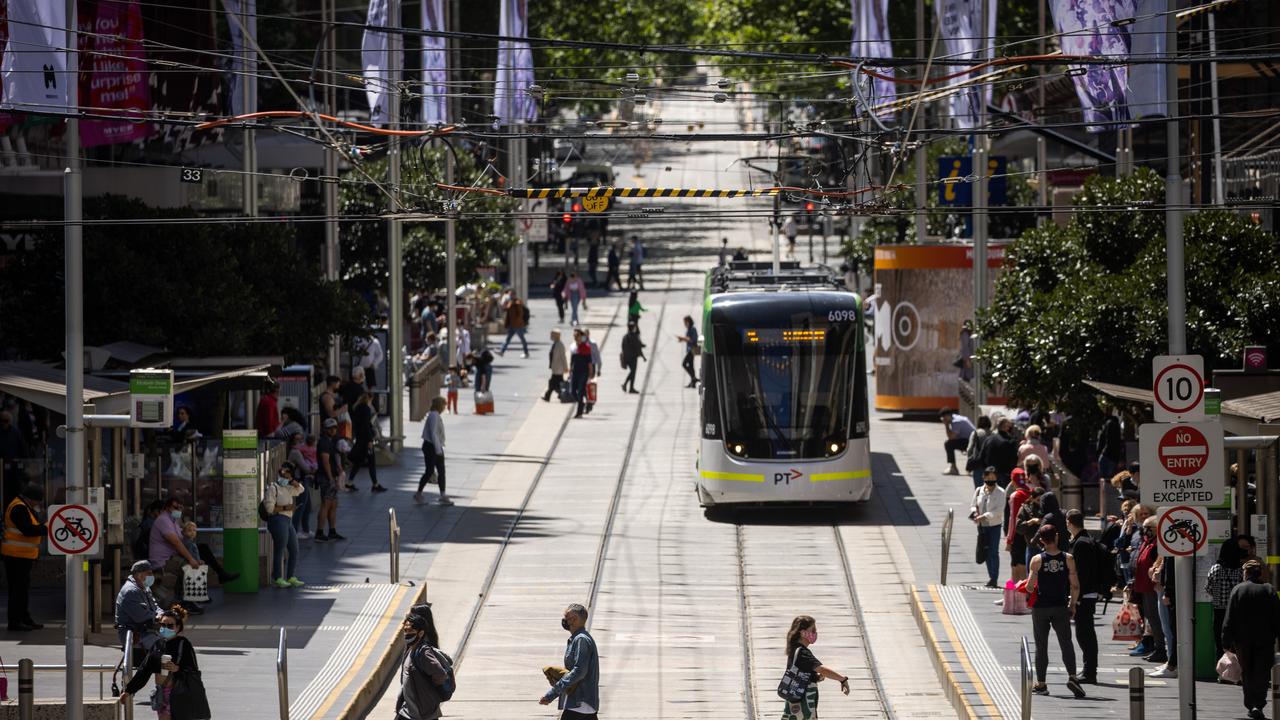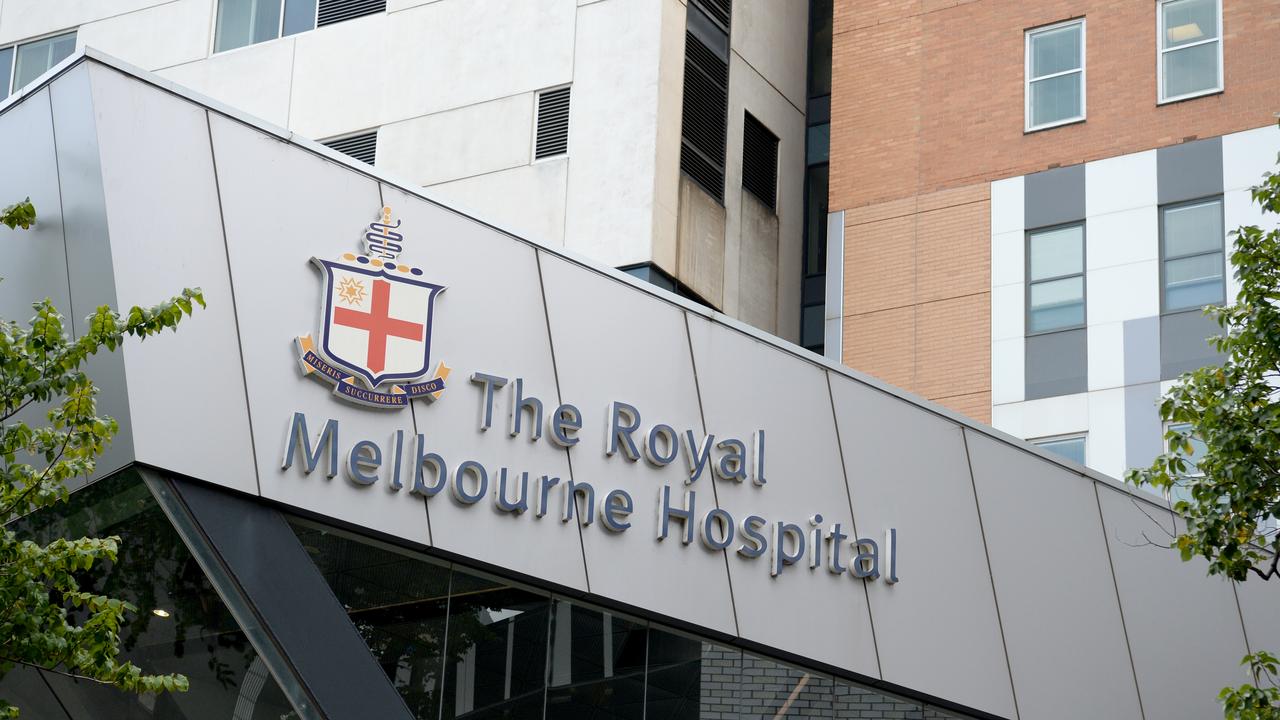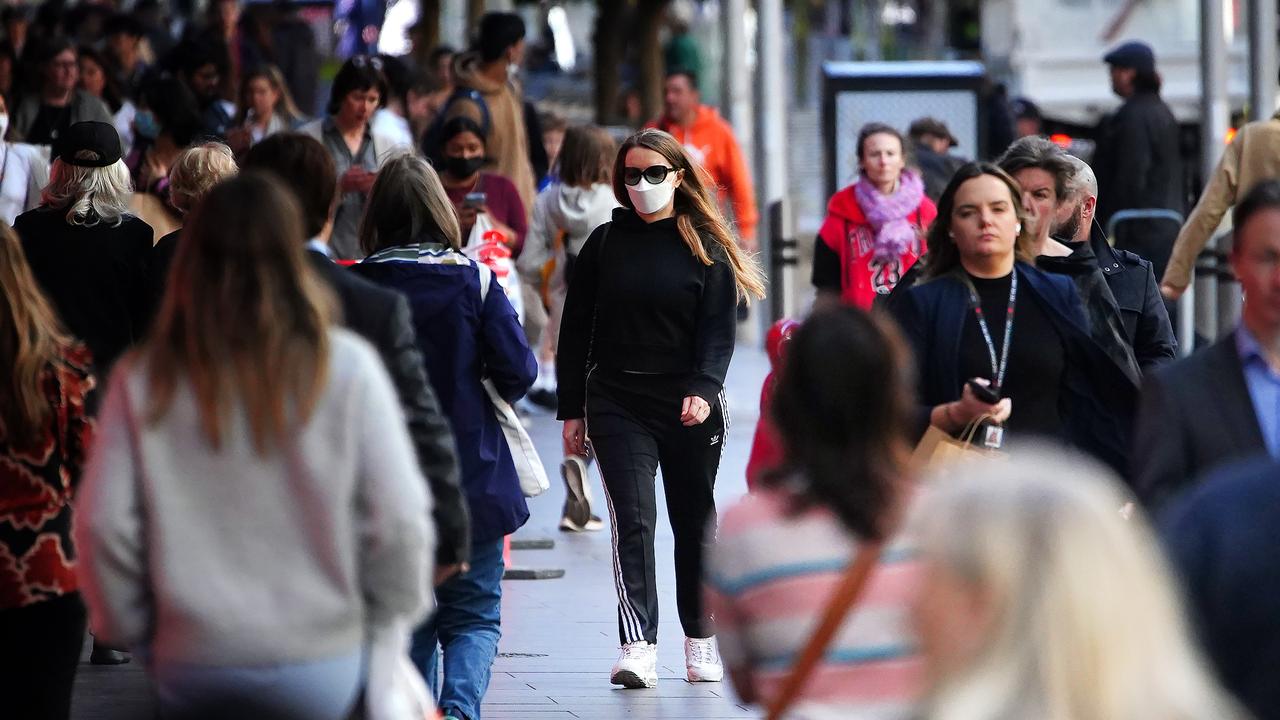Australia facing first wave of Covid-19 in 2024 as new subvariant takes over
Australians are being told to keep themselves safe as dual waves of Covid-19 cause a spike in hospitalisations.

Australia is at risk of being gripped by consecutive waves of Covid-19, as case numbers and hospitalisations in the country’s two biggest states rapidly climb.
A new subvariant of the virus, JN. 1, has taken over as the most prevalent strain of Covid around the world, and at home it is now dominant in Victoria.
Case numbers linked to JN. 1 – which has been classified a “variant of interest” by the World Health Organisation because of its “rapidly increasing spread” globally – are also on the rise in NSW.
The rapid increase comes as the states emerge from another Covid wave linked to another variant, creating what experts are calling a “wave-on-wave”.
In Victoria alone, the seven-day average for hospitalisations as a result of the virus has climbed to 377 over the past couple of weeks, up from an average of 326 in early December.


This follows a high number of cases detected in November, though the figures are not quite as high as the peak levels seen during the wave in May and June of last year, which brought a seven-day average of 488 hospitalisations.
NSW Health has not released any Covid-19 data this year, but data from the last week of 2023 shows activity was at “high levels”.
The housing and care sectors have been urged to activate policies aimed at protecting people at severe risk from Covid, including senior Australians, those who are suffering from medical ailments, and patients in the aged care and disability care sectors.
People in those groups are urged to use masks, and surveillance testing is recommended.
Australians have been reminded that symptoms may appear in 2-14 days following exposure to the virus, with a runny nose, sore throat, coughing, shortness of breath and fever all common symptoms.

While mandatory mask regulations ended in early 2022, at-risk Victorians are urged to wear them in high-risk settings or if they feel like they have any symptoms.
The Department of Health is set to keep tracking and monitoring surveillance indicators, such as hospitalisation rates and wastewater testing, until transmission trends downwards.
More Coverage
Earlier on Monday, Victoria’s chief health officer warned the rise of JN. 1 had created a “wave on wave” pattern, with the variant taking hold just as the state was emerging from a previous wave of the disease.
“Part of the concern with this new variant has just really been the speed with which it’s taken off,” Dr Clare Looker told Nine Newspapers.
“So over a few weeks, we’ve really seen it very quickly be the dominant variant in the community.”





